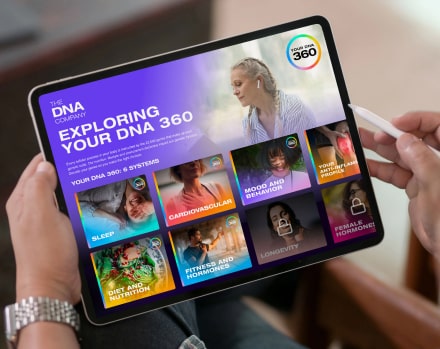Genetic Study Shows Nearly 30% of People Don’t Metabolize Statins Well and Need Personalized Dosing


The benefits and risks of statins
Have you ever been prescribed a statin? Doctors typically recommend statins for reducing cholesterol. For most people with high cholesterol, taking statins is necessary to prevent heart attacks and strokes. For some, though, taking statins can cause serious side effects and even result in liver failure.
According to a recent study conducted by the DNA Company, nearly 30% of people are unable to properly metabolize statins due to their genes. These people need extra attention in order to take care of their cholesterol issues in a safe way.
Cholesterol is your body’s response to inflammation in the arteries. It’s basically your body’s last resort to deal with toxins in the bloodstream and the damage they cause. This leads to a buildup of cholesterol that can cause problems in the long run, such as increasing your risk of heart disease.
What are statins used for?
When doctors discover their patient has high cholesterol, they will typically prescribe statins. You may be surprised to learn that statins are the most commonly prescribed medications in the US.
Types of statins include atorvastatin (Lipitor), rosuvastatin (Crestor, Ezallor), fluvastatin (Lescol XL), pitavastatin (Livalo), lovastatin (Altoprev), pravastatin (Pravachol), and simvastatin (Zocor, FloLipid).
Statins are recommended because they lower cholesterol by blocking a substance your liver needs in order to make cholesterol. Once this happens, your liver will begin to remove cholesterol from your blood. Ultimately, your risk of heart attack and stroke will go down.
For the majority of the population, statins are an ideal solution for lowering cholesterol. However, those who can’t metabolize statins due to their genes can face significant problems if not monitored carefully.
The gene that metabolizes statins
How do you know if your body can properly metabolize statins? It depends on your SLCO1B1 gene. Having the optimal or average version of this gene allows your body to metabolize statins quickly and safely, getting the intended benefits without harmful side effects.
Those who have the suboptimal version of the SLCO1B1 gene, on the other hand, tend to take much longer to metabolize statins. This poor response leads to what amounts to a drug overdose when statins are taken every day.
Aside from blocking cholesterol production, statins can also impact your ability to metabolize hormones and important nutrients if your body isn’t metabolizing them properly. These hormones and nutrients include testosterone, estrogen, vitamin A, and vitamin D. Before long, you could have unbalanced hormones and nutritional deficiencies if you’re not careful.

Are statins bad for you?
Statins are only problematic if you have the suboptimal version of the SLCO1B1 gene. In this case, your body’s inability to quickly metabolize statins can result in serious side effects such as muscle pain and muscle fatigue. Less commonly, statins can lead to liver toxicity and liver failure.
If you’ve experienced any of these side effects while taking statins, talk to your doctor immediately. You may be able to adjust your statin dosage to meet your body’s needs without causing harm.
The best way to find out if statins are bad for you as an individual is to get your genes tested. Once you’ve determined that you have the suboptimal SLCO1B1 gene, you can use this information to create a personalized dosage plan with your doctor that’s safe for your body.
How to control your cholesterol
Although statins are important for reducing cholesterol and improving your heart health, they are not the only way to control your cholesterol. The main way you can naturally lower your cholesterol and become more healthy is through a personalized nutritious diet.
Before starting this new diet, it’s important for you to measure your triglyceride levels. Triglycerides are a type of fat that’s found in your blood. These dietary recommendations are most suitable for people who have triglycerides that are above 90 mg/dl.
If your triglyceride levels are below 90 mg/dl, the best dietary approach for you is to eat two tablespoons of oat bran every day for 12 weeks. Do this for two 12-week cycles each year.
If you’ve confirmed that your triglycerides are above 90 mg/dl, you should follow these dietary guidelines:
- Eat at least 8 dry-roasted almonds every day
- Eat at least 200g of dark green leaves each day
- Avoid foods that are high in saturated fat
- Stop eating fried foods that combine soy, canola, or sunflower oil with carbohydrates
- Avoid sugar and other foods that lead to a spike in blood sugar
You might also want to consider using a continuous glucose monitor (CGM) to track the effects of food and exercise on your body. While CGMs are typically recommended for people with diabetes, they also benefit others whose diet strongly affects them. Using a CGM will allow you to pinpoint which foods are causing you problems and which ones are harmless.
Are you wondering whether your body is unable to properly metabolize statins due to your genetic makeup? The best way to find out is by decoding your genes through our 360 DNA Report. You’ll discover whether you have the suboptimal version of the SLCO1B1 gene as well as 37 other custom reports surrounding sleep, diet, nutrition, hormones, fitness, cardiovascular health, immunity, and behavior.
Each custom report includes your genetic tendencies as well as practical steps you can take to optimize your health and wellness. You are a unique individual, and you deserve health strategies that reflect your unique genome. Get started today.

Through a sample of your saliva, we are able to extract the DNA information we need to provide you with a customized DNA 360 Review.
SCAN YOUR DNA NOW












